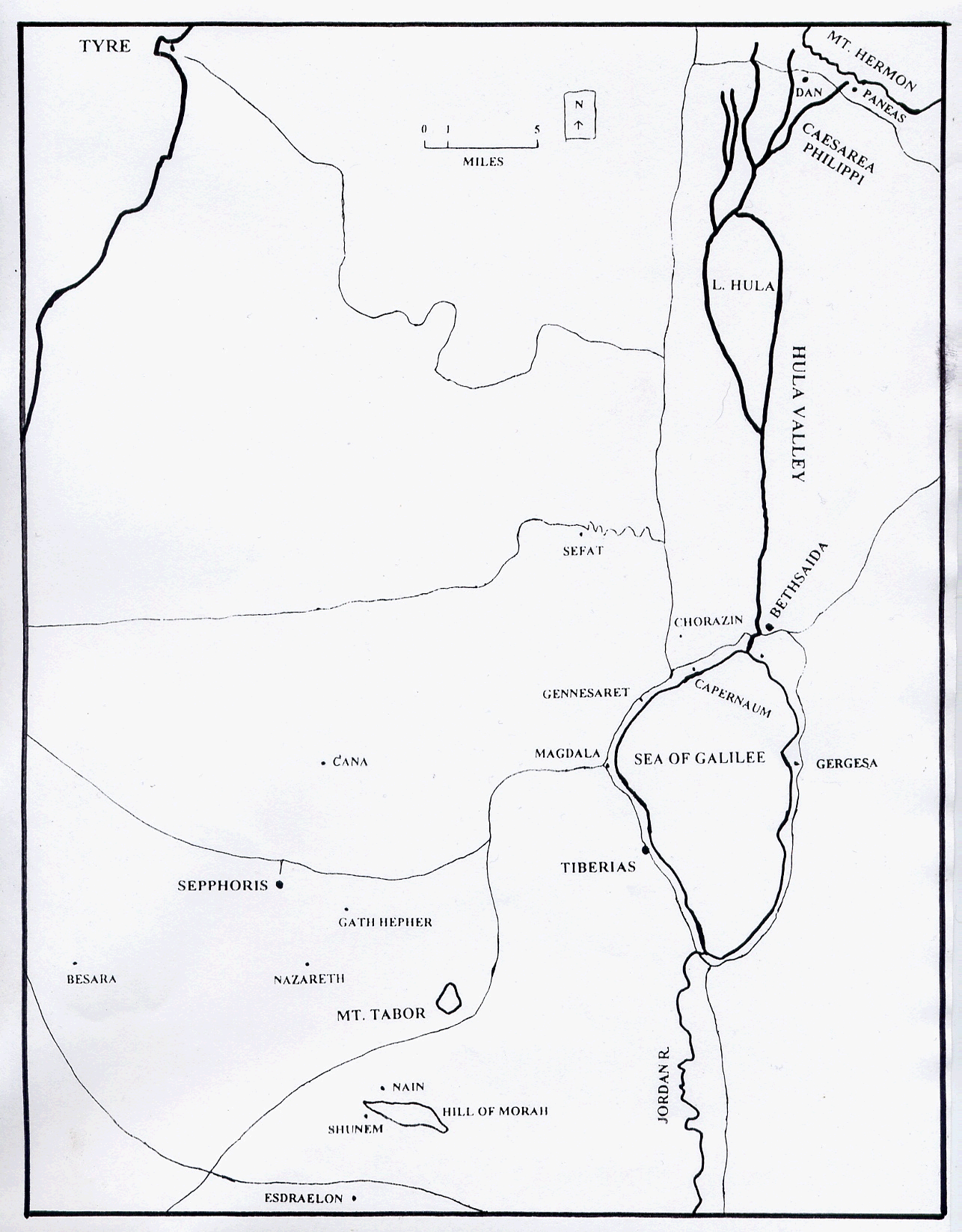50 – Transfiguration
Where: Mount Tabor, Galilee
Scripture:
Notes:
Listen to audio
Jesus and his disciples left the region of Caesarea Philippi and, over the next week, made their way south the 50 miles to the Valley of Jezreel. There is a mountain there that stands alone. Mount Tabor was considered a special place. On Mount Tabor, Barak, Deborah and God defeated Sisera in the time of the Judges when God brought a storm and a flood.
Jesus and the disciples were teaching in one of the small towns in the area. Jesus took Peter, James and John [the inner circle] up the mountain to be away from the crowds. They would be gone a couple of days. These three were the leaders of the disciples and Jesus wanted to spend some special time with them. Jesus also wanted to commune with God.
It was an energetic hike up the steep western face, but they arrived before the sun got too hot. The rest of the day was spent in prayer and discussions, away from the Roman garrison that was stationed on the Mountain.
As evening approached, Jesus was off by himself and was deep in prayer when the disciples became aware that he was changing. The skin of his face had become translucent (just as the face of Moses must have looked like on Mount Sinai) and the brightness of his spirit was shining through, yet it was not painful to look at (as the sun would have been).
Jesus stood up as two men, also shining from an inner light, approached. Though they had never met these men, the disciples knew who they were. The forked beard of the one and the camel hair clothes of the other immediately identified them as Moses and Elijah. They spoke to Jesus for some time and the disciples overheard just enough to realize that they were talking about a “new exodus” of God’s people, and that Jesus should lead God’s people into a new “promised land”. This journey must begin from Jerusalem.
When it seemed obvious to Peter that the three were through talking, he boldly offered to build three temporary structures for them, called booths, so that they might be sheltered for the coming night (assuming that Moses and Elijah would now revel themselves to Israel, they would need a place to stay). [Oops again!] Had he offered to build only one shelter he would have been closer to the truth.
But even as Peter spoke, a shining cloud enveloped the three of them, like a thick fog with the rays of the setting sun illuminating the underside. This MUST be the Shekina [the glory of God]. The disciples were terrified, dropped to their knees, and buried their faces in their hands. Then they heard a voice in their minds, telling them to listen to the Word; the Wisdom of God. Listen to Jesus. And as they looked up Jesus was standing alone before them, the fulfillment of the Law and the Prophets.
The next morning Jesus did not explain anything to them on their way down the mountain, yet Jesus did tell them something new. He told them not to tell anyone what had happened until ‘God had raised the Son of Man from the grave.’ They now were convinced that Jesus saw himself as the Messiah and not just as the forerunner. ‘But then, where was Elijah who was to come first’, they asked.
‘That was the Baptist’, reminded Jesus. ‘Folks did not recognize him because God was not doing things according to their preconceived notions. And because I will not be acting as they think the Messiah should act, they will not accept me either. But God is bringing the eternal kingdom despite their blindness.’
Meanwhile in a town at the base of the mountain the disciples were “becoming a sign” to the gathered crowd. When Jesus and the three reached the bottom, they joined the other disciples who were having a rough time. Apparently there was a man with an epileptic child, which was also deaf and mute, which was understood to be the result of a demonic possession. The disciples could not seem to cast out the demon [just as Gehazi, the servant of Elijah, could not cure the son of the woman of Shunam, a town about five miles away].
When Jesus heard of the problem he immediately spoke with the father of the child to find out about the man’s faith. Jesus was both disappointed and pleased. The father had faith in Jesus, just as he would have had faith in Elijah, but no more. The good news was that he was open to having Jesus help him strengthen his faith. So Jesus immediately cast out the demon. That left the boy looking dead. Now the father needed greater faith, to believe despite appearance. Then Jesus raised the boy up, just as Elijah had returned the son of the Shunamite to his parent.
But Jesus sighed. Jesus knew that the majority of his disciples, the crowd, and everyone else could not see who he was or what he was doing. They could not see beyond the “physical”. That required insight and faith. What a faithless generation. How much longer would it take before they could see with the eyes of faith well enough to be on their own, as representatives of God to a darkened world?
DAB
No questions have been asked yet.

